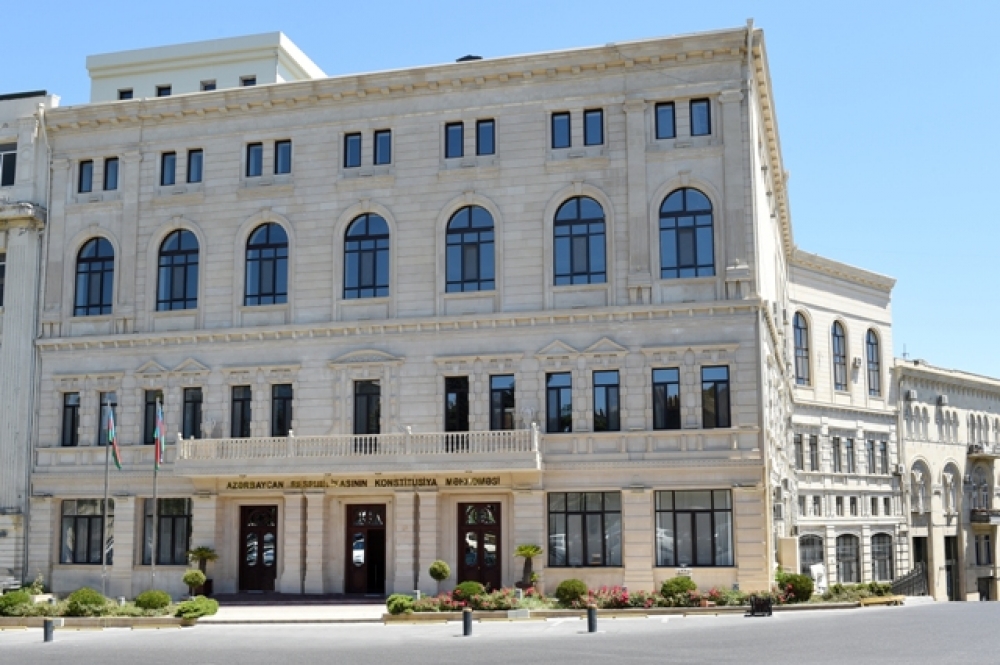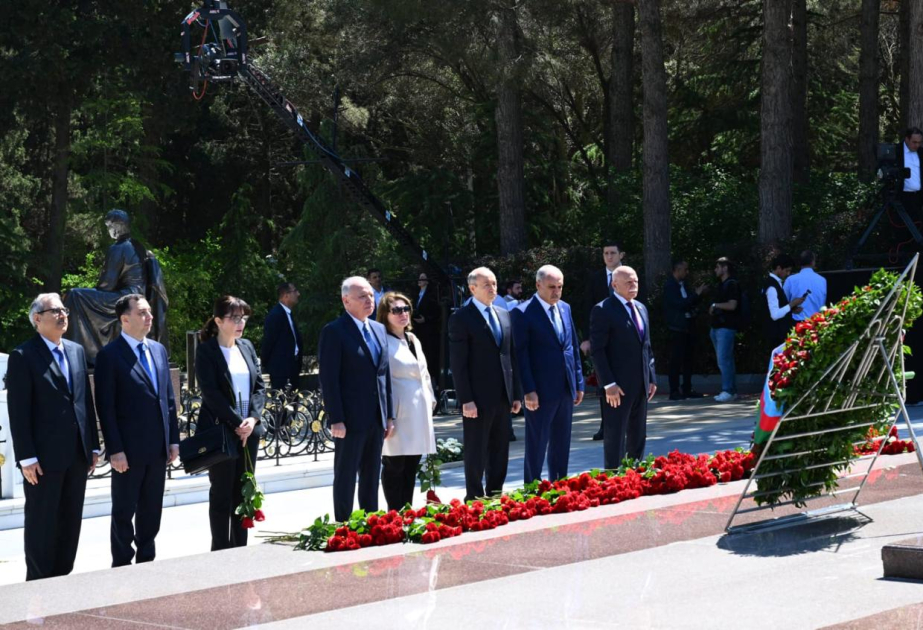02.05.2025
Plenum
of the Constitutional Court of the Republic of Azerbaijan, chaired by Farhad Abdullayev,
held a regular session.
At the court session was examined the constitutional
case based on the request of the Prosecutor's Office of the Republic of
Azerbaijan on interpretation of Articles 99-1.1.1, 99-2 and 99-3.2 of the
Criminal Code in terms of the right to inviolability of property provided for
in Part I of Article 13 and Article 29 of the Constitution of the Republic of
Azerbaijan.
Having heard the report of Judge R.Gvaladze,
studied and discussed the reports of interested parties – Prosecutor's Office of the Republic of Azerbaijan and
Staff of the Milli Majlis (Parliament), the conclusions of specialists – Supreme Court,
Baku Court of Appeal, Center for Legal Expertise and Legislative Initiatives, the Plenum of
Constitutional Court of the Republic of Azerbaijan adopted decision.
The decision states that the provision "used in
the commission of a crime" in Article 99-1.1.1 of the Criminal Code of the
Republic of Azerbaijan also covers items intended to be used as tools and
instruments in the crime being prepared.
The provision of Article 99-2 of the Criminal Code of
the Republic of Azerbaijan on “other property belonging to the person who
committed the crime” refers to any property belonging to the person who
committed the crime that is not included in the property specified in Article
99-1.1 of the same Code.
The provision “property of the person who committed
the crime, other than confiscated property” provided for in the second sentence
of Article 99-3.2 of the Criminal Code includes any property that is intended
to compensate for the damage caused to the legal owner of the property as a
result of the crime by a final court decision, as well as any property that
belonged to the person who committed the crime before or after the commission
of the crime.
In accordance with the requirements of Chapter 15-1 of the Criminal Code, as well as Articles 41.1-1, 346 and 353 of the Criminal Procedure Code, the issues of special confiscation of property, as well as its allocation to compensation for damage caused to its legal owner as a result of the crime, must be resolved by a final court decision.
The decision comes into force from the date of its publication, is final, and may not be cancelled, changed or officially interpreted by any institution or official.
















